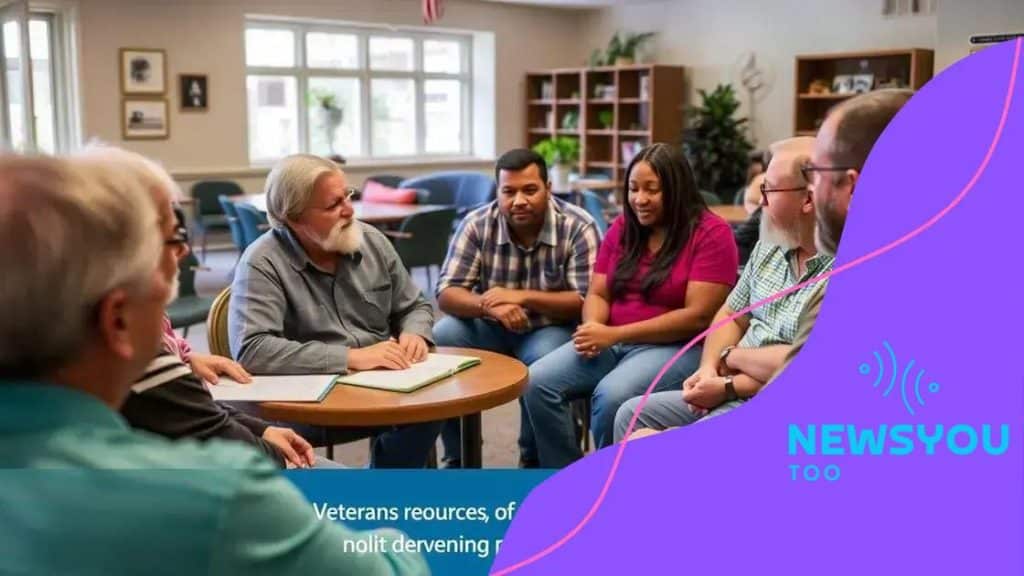Assistance programs for low-income veterans in 2025

Anúncios
Assistance programs for low-income veterans in 2025 provide essential support in financial aid, job training, mental health services, and housing assistance, enabling veterans to overcome challenges and improve their quality of life.
Assistance programs for low-income veterans in 2025 play a vital role in helping those who served our country. Have you ever wondered what support is out there for them? Let’s dive into the available resources.
Anúncios
Understanding the need for assistance
Understanding the need for assistance is crucial for low-income veterans. Many veterans face challenges when transitioning back to civilian life, so exploring the resources available is important.
The challenges veterans face
Many veterans encounter various obstacles that lead to the need for assistance. These can include financial difficulties, mental health issues, and lack of access to education and employment opportunities.
- High unemployment rates among veterans
- Difficulty accessing healthcare services
- Mental health struggles such as PTSD
- Housing insecurity
The transition to civilian life can create a sense of isolation for many veterans. They often feel disconnected from their communities and face the daunting task of reintegrating into a society that may not fully understand their experiences.
Anúncios
Importance of assistance programs
Assistance programs provide essential resources for veterans in need. These programs help bridge the gap by offering support in various areas.
- Financial aid for basic needs
- Job training and placement programs
- Access to mental health services
- Housing assistance
These resources are not just helpful; they empower veterans to reclaim their lives and contribute meaningfully to society. By understanding their need for assistance, communities can better support those who have served.
Key programs available in 2025

In 2025, a variety of key programs are available to assist low-income veterans. These initiatives aim to provide support in essential areas, ensuring veterans have access to the resources they need to thrive.
Financial Support Programs
Veterans struggling financially can benefit from several assistance programs designed to alleviate their burdens.
- Direct cash assistance for housing
- Food assistance through government programs
- Utility payment support during difficult months
These programs are crucial for veterans facing economic hardships, helping them manage their daily expenses effectively.
Job Training and Employment Programs
One major focus for 2025 is enhancing employment opportunities for veterans. Many veterans need training to adjust to civilian jobs.
- Workshops for resume building
- Networking events with local employers
- Apprenticeship programs in high-demand fields
These initiatives provide veterans with the skills and connections they need to secure meaningful employment.
Mental health resources are also a priority in 2025, with numerous programs aimed at helping veterans cope with issues like PTSD and anxiety. Access to counseling and support groups can make a significant difference in their healing journey.
Housing Assistance Programs
Finding stable housing can be a challenge for many veterans. Several programs specifically target housing insecurity.
- Transitional housing options for veterans
- Subsidized housing initiatives
- Support from organizations helping veterans navigate housing resources
These programs aim to ensure that no veteran has to face homelessness, offering a pathway to stable and secure living conditions.
Eligibility criteria for veterans
Eligibility criteria for veterans can vary significantly depending on the type of assistance program. Understanding these criteria is essential for veterans seeking help.
General Requirements
To qualify for most assistance programs, veterans typically need to meet several basic requirements.
- Must have served in the military, usually for a minimum period
- Honorable discharge status
- Proof of low-income status
These general requirements help determine who can access important resources and support tailored to veterans’ needs.
Income Thresholds
Many programs review income to ensure that those receiving help truly have financial need. It’s essential to provide accurate income information during the application process.
- Income levels vary based on family size
- Programs often use federal poverty guidelines
- Documentation may include pay stubs and tax returns
By understanding the income thresholds, veterans can better prepare for the application process and increase their chances of qualifying.
Specific Program Requirements
Each program may have unique eligibility factors to consider. For instance, some housing assistance might require additional documentation or proof of a specific situation.
- Veterans with disabilities may receive priority
- Programs focusing on education often require enrollment in courses
- Timelines and deadlines are important for submissions
Being informed about these specific requirements can help veterans navigate the assistance landscape more effectively. Gathering necessary documentation ahead of time is key to streamlining the process.
How to apply for these assistance programs

Applying for assistance programs can seem overwhelming, but understanding the steps involved can make the process smoother for veterans. Knowing how to apply is essential to access the support available.
Gather Necessary Documentation
Before starting the application, veterans should collect all required documents. Being prepared can significantly speed up the process.
- Proof of military service
- Financial documents, such as pay stubs and tax returns
- Any relevant medical records if applying for disability benefits
These documents help to establish eligibility and ensure that applications are processed efficiently.
Complete the Application Form
Next, veterans need to fill out the appropriate application form for the assistance program they are interested in. It’s important to follow instructions closely.
- Double-check all entries for accuracy
- Provide complete information to avoid delays
- Be honest and transparent in reporting financial status
Accurate and complete applications increase the chances of approval and reduce the risk of needing to reapply.
Submit the Application
After completing the application, it’s time to submit it. Veterans can often submit applications online, by mail, or in person, depending on the program.
- Keep a copy of the application for personal records
- Check submission deadlines to avoid missing out
- Follow up with the program if there is no response within the expected timeframe
Staying proactive can help ensure that veterans receive the assistance they need in a timely manner.
Success stories of veterans benefiting
Success stories of veterans benefiting from assistance programs illustrate the positive impact these resources can have on lives. Many veterans have turned their situations around with the help of these programs.
Transforming Lives
One compelling example is a veteran who struggled to find stable employment after returning home. With the support of job training programs, he gained skills that led to a well-paying job in technology. This not only improved his financial situation but also allowed him to provide for his family.
Overcoming Health Challenges
There are also stories of veterans who found mental health support through various programs. After experiencing severe depression, one veteran accessed counseling services. With ongoing support, he learned to manage his condition and even started a support group for others.
- Increased confidence and self-esteem
- Better relationships with family and friends
- Active participation in community events
Such transformations highlight how critical assistance programs are in addressing health challenges faced by veterans.
Housing Stability
Another success story involves a veteran who faced homelessness. Thanks to housing assistance programs, he secured stable housing and received help in accessing additional support services. This change made a major difference in his life.
- Improved quality of life
- Access to healthcare and job opportunities
- Rebuilding relationships with family
These success stories reflect the importance of commitment and the right resources. Many veterans have found hope through assistance programs, allowing them to thrive and contribute positively to society.
FAQ – Frequently Asked Questions about Assistance Programs for Low-Income Veterans
What types of assistance programs are available for veterans in 2025?
In 2025, programs include financial support, job training, mental health services, and housing assistance tailored to veterans’ needs.
How can veterans apply for these assistance programs?
Veterans can apply by gathering necessary documents, completing the application forms accurately, and submitting them on time, either online or via mail.
What are the eligibility criteria for veterans seeking assistance?
Eligibility criteria typically include proof of military service, honorable discharge status, and income verification based on established thresholds.
Can success stories from other veterans help inspire new applicants?
Yes, success stories can motivate and provide hope to new applicants, showing them that support can lead to substantial changes in their lives.





